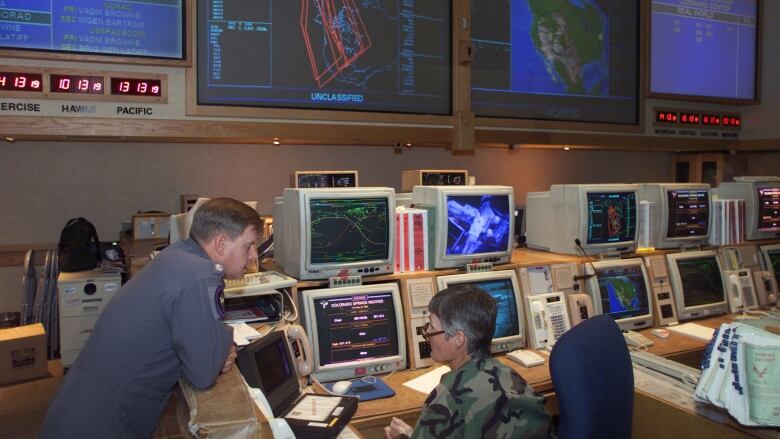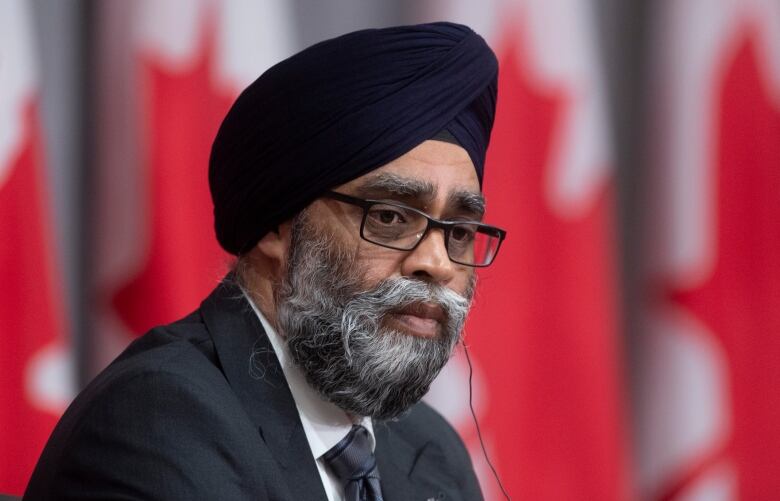The golden silence over NORAD renewal and the voices who want to shatter it
Liberal government keeps quiet, largely due to bruising missile debate of the early 2000s

The old proverb "silence is golden" is pretty muchthe best way to describe the unwritten rule within the halls of power in Ottawa regarding NORAD, the North American Aerospace Defence Command.
The Liberal government has been largely silent on the matter.
The defence policy, four years ago, made passing reference to the anticipated multibillion dollar modernization of the North Warning System, the backbone of NORAD.
After that, silence.
At the end of February, newly inaugurated U.S. President Joe Biden and Prime Minister Justin Trudeau directed their defence and foreign secretaries to meet in a so-called "2+2 ministerial format" to further co-ordinate their joint contributions andrenewal of thebinational arrangement.
After that, once again,silence.
With a photo of himself smiling, Defence Minister Harjit Sajjantweeted happily about the planned negotiations on the day they were announced, but said nothing of substance.
He glanced over the issue during remarks last week to the marquee annual meeting of the Conference of Defence Associations Institute, held in a virtual manner this year.
As much as $11 billion US is likely at stake in the modernization, a bill 40 per cent of which will belong to Canadian taxpayers.
And with that in mind, it was left to the deputy defence minister, Jody Thomas, to fill in some of the blanks, telling the online gathering that over the next year, "the defence team will be working with a number of stakeholders to develop a series of options for government consideration."
We can all go back to sleep for another year, was the message many inthe defence community read into that portion of her remarks.
The problem is, some of the leading experts on continental defence have long howled against the silence which has surrounded this policy issue.

"With the public largely uninformed and disinterested, the media paying only sporadic attention it is no wonder that the Trudeau government has remained silent," said James Fergusson, of the Centre for Defence and Security Studies at the University of Manitoba,in a recent opinion piece for the MacDonald-Laurier Institute.
"Yet, repeatedly over time, silence backfires on government when the issue suddenly and unexpectedly explodes onto the public agenda."
There has been an "illogical and overly fearful" approach by both the current Liberal and the previous Conservative government to NORAD modernization, and the specific issue of ballistic missile defence (BMD), says David Pratt, who was defence minister underPrime Minister Paul Martin.
He speaks with authority.
Pratt was at the centre of the political hurricane that was BMD just over 15 years ago when the Liberal government of the day, fearful of the weaponization of space under the George W. Bush administration, backed away from plans to participate in missile defence.
It has remained a touchy topic ever since.

The Conservatives, who favoured taking part in the program, skilfully avoided doing so during almost a decade in power.
The political sensitivity remained on display last week as Thomas tactfully tried to reframe the debate when asked about ballistic missile defence during the question and answer session.
"As we talk about integrated air-missile defence, here at [the] defence [department], BMD is a solution to one set of problems," she said.
"The range of threats, the range of solutions is what needs to be discussed, not one solution to one set of problems. There are lots of other threats to Canada that are not ballistic missiles."
What Thomas is referring to is the recent advancement in ground-hugging cruise missile technology which NORAD is grappling to counter with novel concepts such as plugging into the civilian air traffic control system, as well as satellite technology that looks down on threats.
Also implicit in her answer is the lingering concern about Russian and Chinese advances in hypersonic missile technology, which can deliver a conventional warhead anywhere in the world within minutes, negating existing missile defence networks.
"I believe we should be in the room when something is happening to Canada or to North America and I think there are ways of achieving that goal without significant investment in one particular solution over another," Thomas said.
Since Canada did not sign onto BMD,its officers must step aside during a potential ballistic missile crisis.
"So, let's talk about the range of threats and the range of solutions, rather than getting caught up in the politics of one particular line of defence," she said.
Pratt says it is absolutely essential that there be a frank, public dialogue about the existing threats aheadof negotiations with Washington.
He sayshe believes the Canadian public will understand what's at stake.
"The last time, there was a knee-jerk reaction," he said. "It didn't serve us well."












_(720p).jpg)


 OFFICIAL HD MUSIC VIDEO.jpg)
.jpg)



























































































